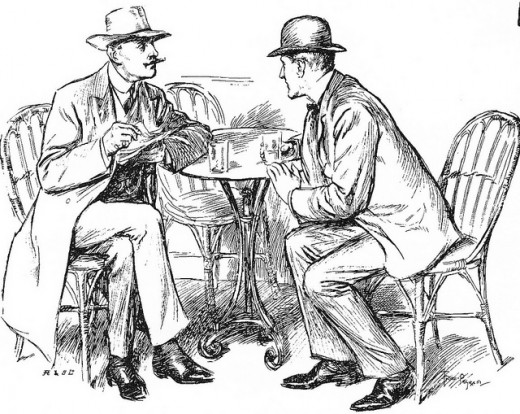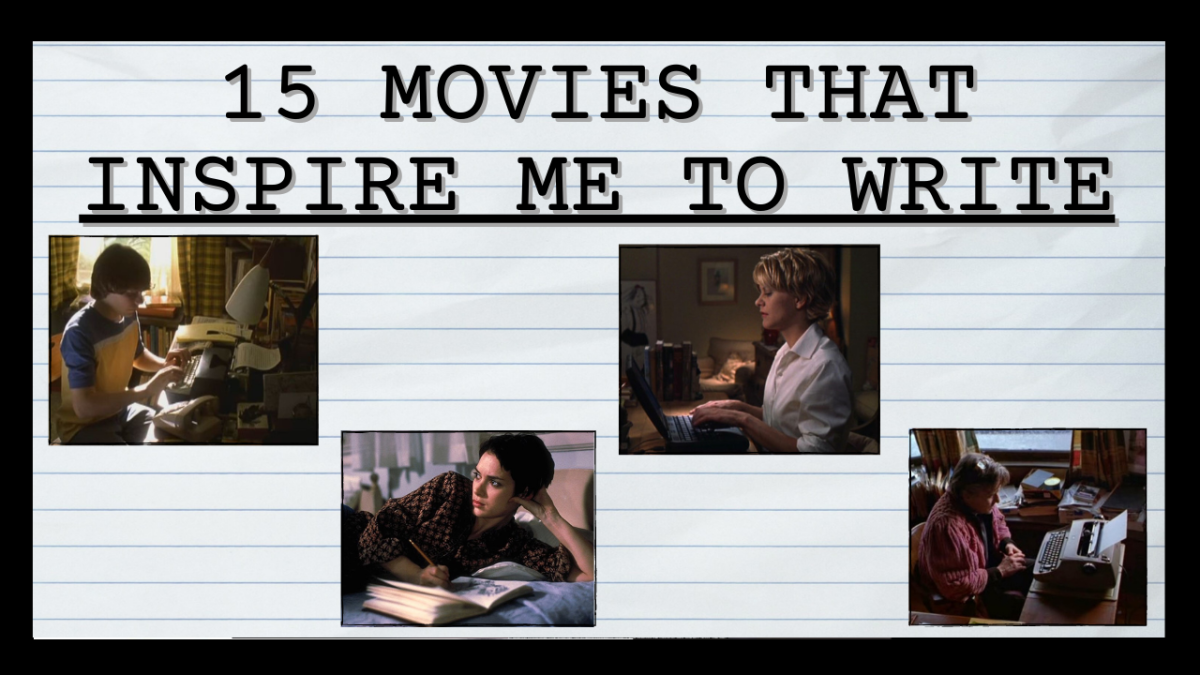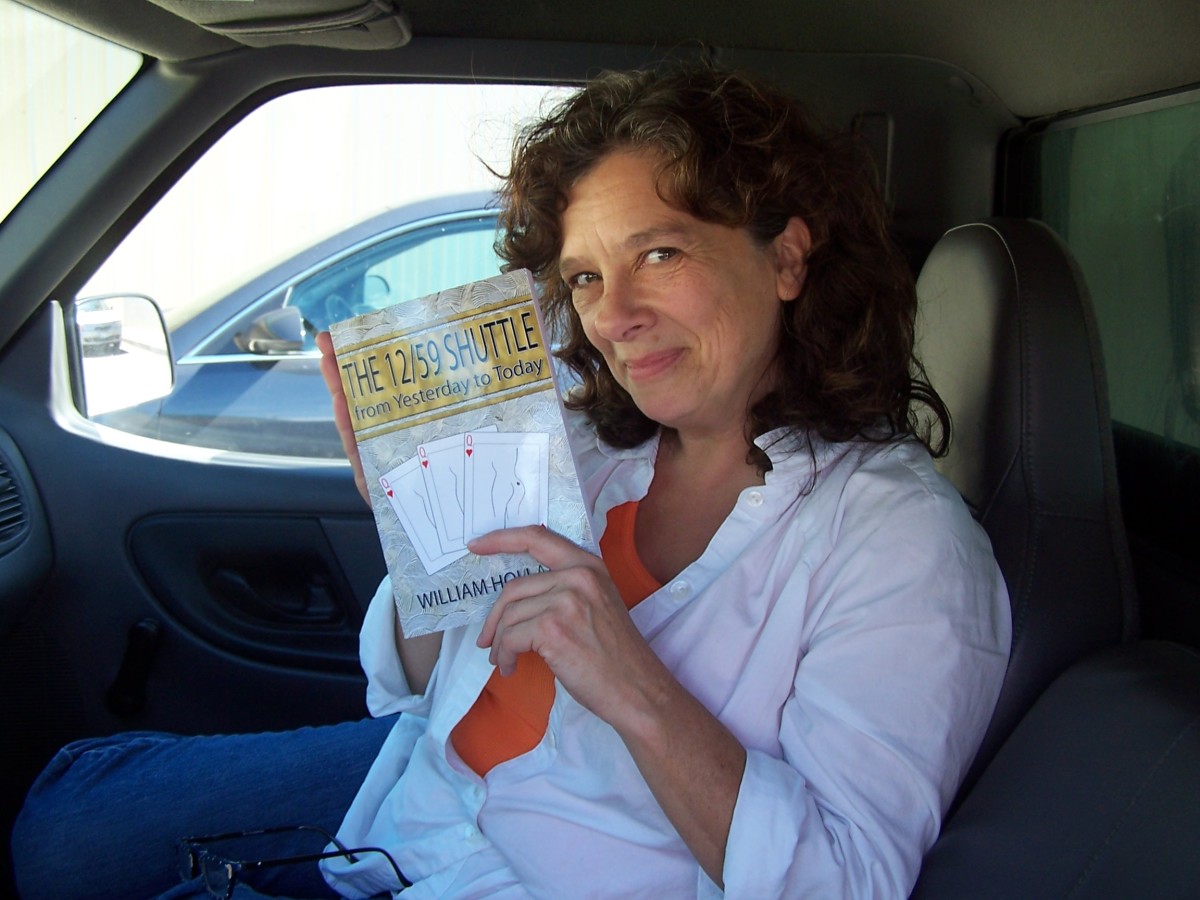How to Start a Novel - Tips and Tricks on How to be Successful and What to Avoid

Once upon a time, there was a young, talented writer. He was capable of producing pages and pages of an interesting story, one where the reader would be captivated for hours at a time. In a single sitting, he could concoct a plot filled with nail-biting conflict, a setting where every detail of every brick on a house can add emotion to the scene, and characters that could very well be walking the earth at this very moment. In his mind, there were endless capabilities. He could write about a celebrity preparing for their next photo-shoot or an old farmer raising his family and livestock on a desolated plot of land. He could write about anything and everything he wanted. With a blossoming mind and a lucid imagination, this writer was well on his way to writing his first novel. By keeping these creative writing hints and tips in mind, this writer could easily be you. Writing a novel is a helpful and fun experience because it increases one’s overall writing ability, expands the creative mind, and allows for personal expression through words rather than actions.
What should I be prepared for?
In your head, you have a vision. You can see the characters now, acting out their scene and conversing among one another about yesterday’s events. You’ve written down an outline of the plot of the story, you’ve got some ideas about details you want to include, but what are some of the things you have to worry about before you actually commit to writing this thing? Let’s get one thing straight, no matter how good of a writer you are and how much experience with the subject matter you have, writing a novel can take a long time to complete. If you are a strong writer who shells out around 2,000 words a day, it would take anywhere from 3 to 4 months. If you can only write 500 words or less, it could take about a year. Most writers should give themselves 6 months to a year to write their complete first draft. The amount of time it takes is in proportion to the length and quality of the story. So basically, if you want to just throw some thoughts down on paper and call it a book, it shouldn’t take more than a few weeks. But, if you want this book to blow people away and show off every facet of your abilities, you need to be willing to invest a huge chunk of time in writing, revision, and rewriting. Some of the best authors admit they are not good writers, but they are excellent rewriters.
Before you begin writing, make sure you have a good grasp on your initial idea. For most writers, this can be the hardest part of starting a book. Often times they will think, “Oh, this is a great topic! I could write pages upon pages of this!” Come page ten and they are already sick of it. Find a subject based on what you want to write about.
Still looking for ideas? Choose something that you're interested in. This way, you're more likely to keep writing.

How do I get started?
After finding the perfect topic for your novel, you might be wondering, “How do I get started?” Getting started can be easy as long as you brainstorm, take notes, and find a happy place.
Brainstorming could easily be the most important thing to do in preparation for writing the book. It gives you a chance to list everything going from your head, from your first experiences with the subject to your attitudes and beliefs towards it. Nobody is going to judge you for what you write down, so let your mind go wild. Ideas that come from brainstorming can do great things in your writing. Don’t worry about getting the words right, just get them written.
Taking notes goes along with brainstorming. Getting your thoughts down on paper is a process that takes time and patience. However, it allows you to remember things you would have otherwise forgotten. Also, make sure to keep everything you have and keep your notes in a safe place. You can always use notes to refer back to if you have a question about a scene or character in the book when you are writing. These notes might seem like a lot of work at first, but putting in the work makes your stories better overall. Remember that more literary careers come to an end when the writer runs out of ideas that at any other time, so write every idea down just in case you get stuck.
Find a place where you can work interrupted, such as a coffee shop or library. Make sure you feel comfortable there. Finding a productive place to work will serve you well if you want to be a writer. Also, set aside a designated amount of writing time every day. This will help keep you organized throughout the entire process.
What is the basic process for writing a novel?
Start out by writing anything. The words you put down at first don’t have to be perfect. In fact, nobody ever gets it down perfect the first time. In fact, most writers hate their first draft. Keep just about everything you write; don’t censor your work initially. You can always go back and edit later.
Your first revision is extremely important because in this step all major errors need to be fixed. For example, make sure your main character has a flaw or vulnerability that makes the story interesting. Some advice in the revising process is to first check the plot and the characters for inconsistencies, then work on the language itself. Also, make sure your conversation is interesting. Readers don’t stay focused if all the characters do is talk and talk and talk without any action. This brings me to the next point: cut the flab.
Just as extra unattractive fat on the body is considered “flab”, extra words in the story are called “flab” as well. Flab doesn’t add to the story, it simply makes it longer. Forcing the reader go through page after page of unnecessary words will make them lose interest in what is really going on. It’s the same thing with repeats. Sometimes repeated lines create the desired effect of standing out; sometimes it’s just plain old flab.
When cutting the flab, check for cliché sayings. Cliché’s are so common that they don’t have a visual appeal anymore because we are so used to hearing them. Whenever you hear phrases such as “old as the hills” and “gentle as a lamb”, you don’t really visualize much about the character. Author Michael C. Smith writes that, “Cliché’s have their place in our conversations, but resorting to them in creative writing can deaden or obscure the fresh things we are trying to say and give the impression of a lazy imagination".
After initially reading over it, read over it again. The more you read and revise, the more mistakes you can catch. The more mistakes that are caught, the better the book will be. Some things to look out for during this revision process is to change the phrases and scenes that do not go smoothly. Again, make all dialogue interesting and include details to enhance the story’s realism. These little tweaks can turn a good novel into a great novel. When you believe there is nothing left to be fixed, have friends and family look over it. Sometimes other people can catch things that the writer would never have caught. Other people can also tell you which scenes are done well and which scenes could use some work. Allowing other people to read it is one of writing’s perks that make it an enjoyable hobby.
What skills should I have?
There are several skills a writer must have when writing the novel. The first is knowing how to tackle the monster of writer’s block. When faced with this book-killing beast, try writing the novel out of order. When you get bored of writing a certain part, move onto another so you are not necessarily writing the same thing, but still writing about the same amount every day.
Also, don’t try too hard to get it right the first time. If you attempt to be like the best authors in the history of the world during your first draft, you will get discouraged. Analyze successful stories and find out why they make you want to write more. Think of what you would have wanted to keep and what should have been discarded. When writing, start with a rough draft and work your way to a smooth final copy.
Another thing to remember is not to worry about how bad your book might turn out or who might judge you for writing what you want. Just don’t worry about it. Other’s opinions won’t matter until the book it over, so write what you want to write about, not what others tell you to write about. Keeping this in mind, don’t be arrogant. You need to be able to take criticism and learn from it. Criticism isn’t meant to hurt anyone’s feelings; it is meant to help you on your journey to writing a successful novel.
What makes a good writer?
Good writers are good readers, which means that when reading someone else’s novel, keep in mind the parts that captivated you and the parts that you started zoning off and blankly scanning the lines. How did the author make you want to keep reading? Why was that one part so boring? By learning from the mistakes of others, you can avoid these mistakes in your own writing. Author Tom Bailey suggest that, “The writer, even the writer who will seem to readers and reviewers strikingly original, has probably based his or her prose style and prose vision upon significant predecessors".They saw that by writing a certain way, the story was more interesting to read and it was easier to follow along with what was actually going on.

How do I develop good characters? How can I make them more realistic and relatable?
Developing the characters will add emotion to the novel. It makes the reader attached and more involved in what they are reading. In any successful novel, the characters need to be realistic. Realistic character’s views are constantly changing; it is what makes the story different even if the plot is exactly the same.
To make a realistic character, you first need to realize a character with your senses. You should include and observe physical details such as hair color, race, clothing, even their expressions. Think of your characters as real people that actually exist at this very moment. Real people have little quirks about them that give them personality. So should your characters. It may even help to base your characters after people that you actually know in real life. Using people you already know can make the characters seem even more realistic.
These little quirks can either be the way they laugh, their temper when someone brings up an embarrassing secret, or their love for seeing the fireworks on the fourth of July. Behavior and habits reveal more of the character’s personality than description ever could. Readers need to see how they react to certain situations that are potentially realistic in order to better know who the character is.
Practice writing about characters by giving them a scenario, such as walking into a pizza joint, and see what they would do in a particular situation. Try switching point of view to see how it changes the story. Some writers become familiar with their characters in other ways, such as charting their traits and having such material ready for emergency.
In making these reactions, dialogue and thought processing also reveals much about the character. Some writers include periods of stream of consciousness, which allows the reader to know exactly what the character is thinking at any given time. This approach would be good because it lets the author put down everything he is feeling. However, it may be harder to communicate to the readers. If you want to keep a story third person, however, dialogue is the best route to travel. In Stream of Consciousness in the Modern Novel, the author states, “A good writer needs to communicate the thoughts, actions, and opinions of a character in order for the reader to fully understand their intentions".
Why is dialogue so important?
Dialogue makes a character believable. It is what truly reflects a writer’s talent, success, and personality. A good writer adjusts their dialogue to better fit their character. For example, someone from the south may have an accent or someone from the ‘hood would talk in fragments with a lack in coherent sentence structure. This all helps develop a character and makes them stand out if they talk differently than the average person.
While dialogue can make a character original and believable, it can also disclose details about that person. Conversation between characters can provide insight into personality. The reader can learn things about the character just by what they talk about. For example, they could learn that Johnny’s favorite color was red or that Susie’s favorite food was pepperoni pizza just by what they say to other people. This is important because instead of simply stating details in a boring introduction, you could reveal little details all throughout the book just by including them in dialogue.
Remember not to overuse the word “said” when making your characters talk. There are other words such as interrogated, conversed, affirmed, declared, etc., which adds variety to your writing and will make it flow smoother. It is much more interesting to read about people who yell, whisper, question, and scream things rather than just say them. Spacing in writing can also add intensity to the story.

How can I make my plot more exciting?
Having good characters is great, but they won’t do any good in the story without a plot. Characters need a motive. The motive often drives the plot. A motive could be to win something, whether it is a game or the love of another character, to hurt something, to save someone, etc. Tom Bailey defines it this way: “Motivation is the heart and soul of any character’s action or inaction". The plot is merely a sequence of actions; it is what drives the plot to keep going that is important.
If you have read your fair share of books, you probably realized that plot does not start at the very beginning, it becomes apparent as the story progresses. The plot is something for the writer to know; the reader will discover it throughout the novel. Your job as a writer is to keep the reader on their feet the whole time; if the plot is predictable, then the story becomes dull. Some advice from Laurel Yourke is to “Focus on character and conflict rather than preserving any plan. You’re better off letting characters and plot function as a mutually interactive open system".
Where should my book take place?
When you have a great plot with fascinating characters, you need a realistic setting to tie it all together. When coming up with a setting, it is best to use places that you know very well or at least well enough to describe. The more you know about a place, the more you can pay attention to details. If you know distinct street names, you can pinpoint exactly where your characters are going on their adventure. If you know about the climate, you can make harsh rainstorms that inhibit the character from reaching his/her goal or a hurricane that kills off several people. You could also know certain restaurants or places to hang out, which also makes your characters seem realistic. You have an advantage in writing about a place if you’ve actually been there.
The setting can also help with character development. Certain stereotypes may be more common in one place than another. For example, gangsters would more likely be found in the Detroit alleyways, whereas they may not be out playing with ponies in the Kansas cornfields. Sometimes these stereotypes help enhance believability. Some characters are in a certain place for a reason; the more common it is for a person to be in that place, the more realistic the story may be. Maybe a wildlife expert could be concocting a study in Africa on the magnificent animals that live in the savanna. However, a hairdresser would most likely not be in Africa unless they are on vacation, which may be realistic, but it would not be as interesting because they do not typically go there for a purpose.
Why is conflict so important in a novel?
The final element in creating a good story is conflict. Conflict must occur in your book at some point, whether it be internal, against oneself, or external, against others. Also, the novel must have a protagonist and an antagonist. In some cases there can be more than one protagonist and more than one antagonist, but usually a single enemy or hero is more effective than a whole group of people. The sole purpose of the author in bringing two opposing forces together is to produce conflict to hold the reader’s interest.
Conflict can also be the result of two conflicting ideas. For example, one character could be pro-abortion while the other one completely agrees with it. They could constantly fight over the issue or be forced to take a stand when one becomes pregnant. Using a controversial topic to create conflict can be very dramatic, and it may cause real-life conflict if you allow other people to read your novel.
Do the benefits of writing outweigh the costs? What are some of the more rewarding aspects of tackling a project like this?
Now that I have explained the elements to creating a story and how to avoid mistakes while writing it, let’s go back to the essential question. Why should you even write a novel in the first place? I interviewed John Caudill, who, aside from being an excellent writer and my biggest inspiration, has much experience in the writing field. I asked him what his favorite thing about writing was, and he had some interesting things to say about it.
“My favorite thing about writing is the creative freedom and the ability to bring into existence or kill off whoever you would like or whatever you would like. Nothing exists; nothing thinks or moves without your permission. It’s a lot of power. It gives you a feeling, almost like a godly feeling that you can take away something that didn’t exist and can control almost every aspect of it". He expressed how writing allows you to truly show your creative side; you can control whatever you want and you have unlimited possibilities. When writing, you control what happens; “You can let your imagination go wherever it wants to go".
I also asked John Caudill what the hardest part about writing a book was. He replied, “Finishing it, first of all. There are lots of times you have ideas for stories and you may start writing it and find that the story or certain characters fall flat and you scrap it and start over". While finishing it is the most difficult part, “Creating something that didn’t exist in the world until you did that piece and providing entertainment for yourself or whoever reads the story” is the most rewarding part of writing your own novel.
Although writing a book takes a lot of time and can be a difficult project, the final product and the perks of completing it outweigh the downfalls by far. If you can overcome your shortcomings and follow the tips to success, you can create a masterpiece that you can share with all of your friends of family. Writing a book, whatever topic it may be on, is something to be proud of.








